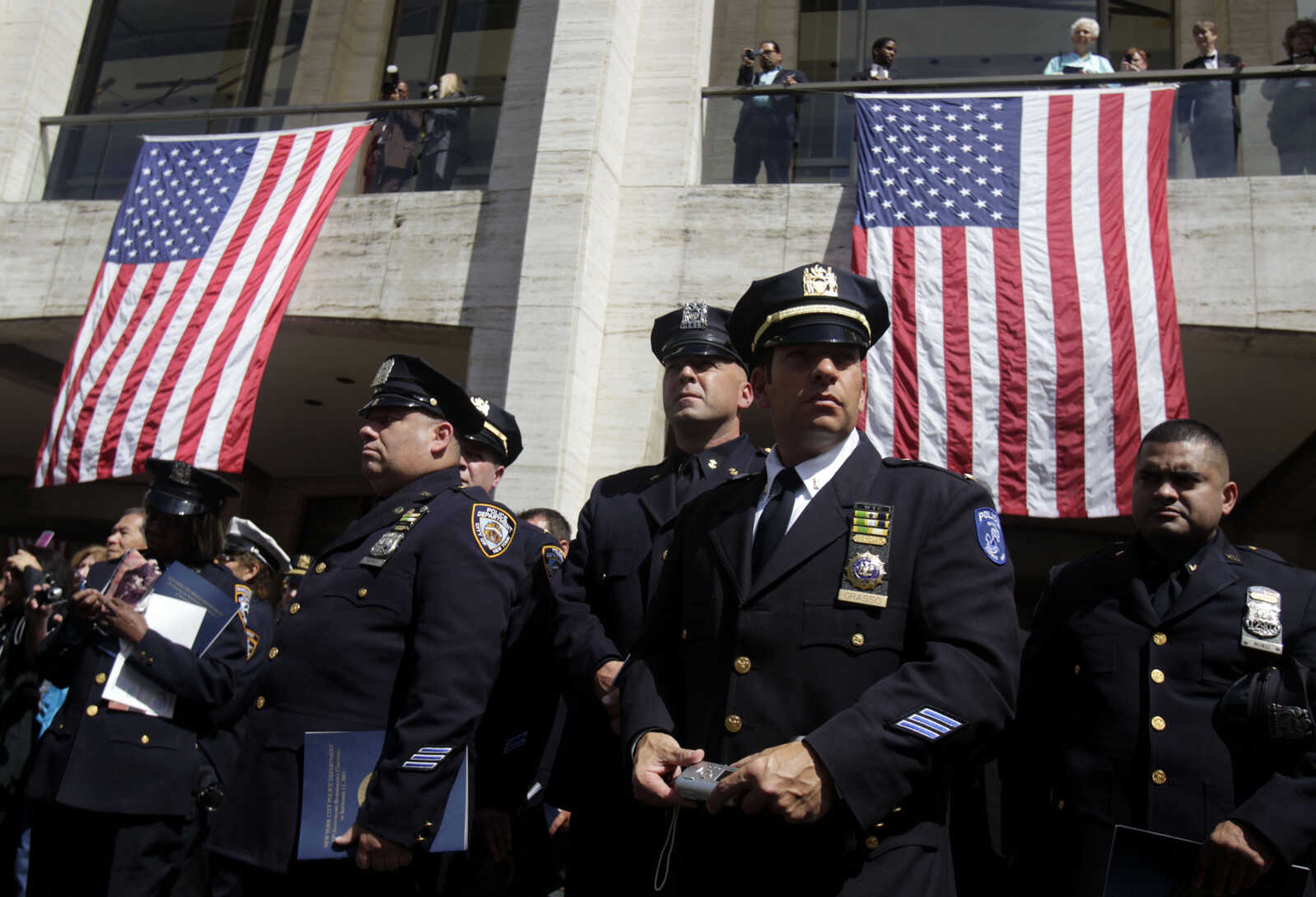9/11 remains an unclear memory for many high school students
For most high school seniors in Southeast Missouri, their memories of Sept. 11, 2001, are not vivid. Some remember watching the attacks on the World Trade Center on television with their families after school, or briefly in their second grade classes. Others weren't aware until several years later what happened. Like others who do remember, they mostly don't understand why...
For most high school seniors in Southeast Missouri, their memories of Sept. 11, 2001, are not vivid. Some remember watching the attacks on the World Trade Center on television with their families after school, or briefly in their second grade classes. Others weren't aware until several years later what happened. Like others who do remember, they mostly don't understand why.
"My mom drove me to school for two weeks after," said Sierra McClellan, a senior at Cape Girardeau Central High School. "I just remember liking not having to ride the bus."
Her friend Chelsea Willet remembers her teacher crying and getting angry with a boy who said he thought a plane crashing into a building was funny. The teacher had family in New York, Willet said.
Both girls said they think they began to understand what the events of that day meant around the sixth grade. Over the years, they have formed a picture of what they think happened from movies, classroom discussions and news they hear about current events in the Middle East. They said they aren't sure of what they would do if another attack happened.
Senior Lauren Dumey said she doesn't think another attack could happen, or if it did, it wouldn't be as large as the attacks of 9/11.
"What could I do?" she asked. "I think I would just pray."
Ashley Diemer's parents were flying on 9/11, and their plane was grounded.
"I remember my parents saying nothing will ever be the same after this," she said.
Most of the seniors don't believe 9/11 has much effect on their everyday lives. They just know airport security is much tighter than it used to be.
At Jackson High School, senior Tory Patrick said she feels safe living in the Midwest. But she does wonder if 9/11 made people she knows act differently.
"I sometimes have to remind myself not to think in a discriminating way," she said.
She thinks that feeling comes from some of her family taking a somewhat more cautious look at people of Middle Eastern descent following 9/11.
Nathan Friedley remembers a boy at recess calling himself a terrorist and pretending he was plane crashing into playground equipment.
"We were old enough to know it happened, but not old enough to understand what it really meant," he said.
Southeast Missouri State University history professor Dr. Joel Rhodes said the students' understanding of the events of 9/11 are comparable to those of baby boomers who endured constant warnings of attacks and bomb drills in the 1950s and those of the public after the bombing of Pearl Harbor, but there are likely vast differences in how they view an enemy of the United States.
"The imagery of 9/11 is immediate and far more seared into the minds of this generation than they were in the events of Pearl Harbor," Rhodes said.
Now, he said, enemies of the United States aren't as often nation states, but global groups.
They can't be as easily identified, he said, which ups the feelings of vulnerability. Not being able to identify that enemy gives the youngest generations a great sense of patriotism, but it is unfocused. That likely causes uncertainty for children when they consider the events of 9/11, he said.
eragan@semissourian.com
388-3627
Pertinent address:
One University Plaza, Cape Girardeau, MO
1000 S. Silver Springs Rd., Cape Girardeau, MO
315 South Missouri St., Jackson, MO
Connect with the Southeast Missourian Newsroom:
For corrections to this story or other insights for the editor, click here. To submit a letter to the editor, click here. To learn about the Southeast Missourian’s AI Policy, click here.










